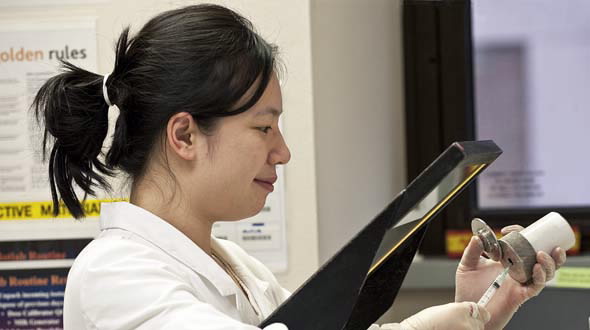A new collaborative arrangement will give Australian researchers access, for the first time, to a reliable domestic supply of medical isotopes used in pre-clinical and early stage cancer research.
 |
| A new collaboration will enable Australian researchers to pursue new nuclear imaging techniques to benefit patients affected by cancer. |
Through the agreements, Australian researchers and clinicians will benefit from local production of these Positron Emission Tomography (PET) isotopes, which previously had to be imported.
The novel isotopes have significant potential to advance research in therapy management and eventually treatment. Initially Copper-64 (Cu-64); Zirconium-89 (Zr-89) and Iodine-124 (I-124) will be produced, with Yttrium-86 (Y-86) to follow.
Organisations in three states, all of which have been individually involved in the fight against cancer, will now work together in enabling the production and use of these PET isotopes.
PET works through a combination of gamma rays and a highly sensitive scanner to produce a 3D-image of a subject, clearly outlining areas affected by cancer.
“These additional facilities and reliable access to isotopes mean new opportunities for discovering exciting new ways to combat cancer. It is incredibly important and exciting.
“Our collaboration will enable Australian researchers to pursue new nuclear imaging techniques to benefit patients affected by cancer.”
“Through them we will support collaborative and clinical research, and increase the Australian knowledge base about these emerging isotopes,” said Prof Andrew Scott from Ludwig Institute for Cancer Research in Melbourne.
“These facilities will help us develop new opportunities for fighting cancer by hosting the development of improved diagnosis and patient outcomes.”


